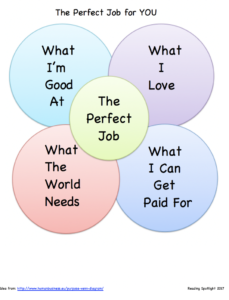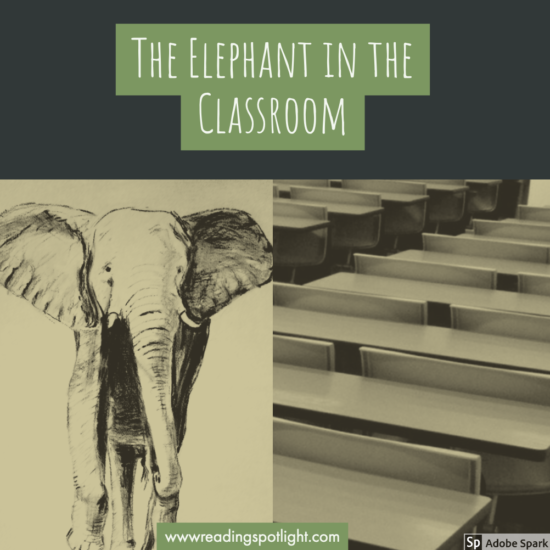Where is the elephant in the classroom?
The recent college admissions scandal might give us a clue.
The scandal is a failure on many levels.
First, it is a crime to pay someone to take or change answers on the SAT. It is also a breakdown of parenting when these wealthy parents abrogate their fundamental duty to model basic standards of honesty, respect for others, and responsibility for one’s actions. They want their kids “to be happy,” so they take the easy path, using their money. They might want to brag about their child attending a “top tier” university. Some parents want to be “cool,” often giving up when discipline requires perseverance. They allow media to consume what should be family time and learning time and are sometimes centered on their own lives, ignoring their real obligations to children.
It is an ethical disaster for university admissions boards, too. They allow the wealthy to purchase seats in their educational systems, with legacy admissions or with phenomenal essays (rewritten by experts), fascinating internships (obtained with parent contacts), good SAT scores (the honest ones—often obtained with expensive after-school and summer workshops), and unexamined records of extracurricular activities (often patrician sports like crew, fencing, squash, which appeal to donors). My high poverty school didn’t even have a track team, while a neighboring school district had 30 sports, including sculling. What is a middle or working-class family to do? It is distressing to think of our over-worked public school teachers and counselors competing on applications for their students against such power and money.
Most of all, though, the scandal is a failure of American culture. Competitiveness and greed blind many to the basic truth that money does not always produce success. Media, politicians, even educators, subscribe to the importance of a college education—for everyone. All children must go to college to get a high paying job, as if income is the only determinant in deciding on a career and a happy life.
The college (and testing) frenzy produces classes filled with drill on short passages of text. Students must search for the easily-tested data presented, often with insufficient amounts of text needed for higher level learning. They and their teachers will be judged on this. A good score on a standardized test is most important. Will the college admissions application explain all you need to know about a student? Will the score on a state exam tell all you need to know about a school? Standardized tests are limited in gauging true education. Recorded grades are very momentous—actual learning, not so important.
Short attention spans are fostered by too much media consumption. Teachers acquiesce. Higher level thinking skills, such as in-depth critical thinking, rigorous analysis, resourceful synthesis, high level comparisons of complete books, and extensive appreciation of literature in all forms are rarely initiated. Average students can accomplish these skills, too, at their appropriate reading level. Honest!
Frequent independent reading of books of students’ own choosing for pleasure? Gone. Teachers do not have the time to read and comment on book reports, or to allow class time for students to discuss books they have read. Yet research shows that the most effective way to inspire more reading is to have students share with others their own experiences with books that they have read. I also believe that students would read much more if teachers made many assignments for independent reading. When I was studying to become a reading specialist, the professor required us to read Neil Postman’s The Death of Reading. We all laughed about the prediction then. I’m not so sure anymore.
In the future, artificial intelligence will perform all of the lower level skills, but our schoolchildren are, nevertheless, asked to memorize and regurgitate information in almost every class. When I watched my high school grandchildren for a week, I was saddened and angry when I found them sleeping over AP homework at 11:00 pm, refusing to go to bed until it was completed. And… it looked like busy work to me. What is the purpose of requiring 20 problems when a student has learned the content after 10 problems? Why egalitarian homework? Why memorize dates in history when you can google them? When I call to ask the kids, “How was school today?” the same depressing response awaits. “Bor…ing!” Times tables, spelling lists… So much wasted brain power, and so uninspiring…in so many ways…at all levels of American education.
If a student has no desire or aptitude for college, few seem to care. Here are some grim 2018 statistics*
20% of American students drop out of high school
20% graduate from high school but have poor skills so they end up in low paying jobs
20% go to college but drop out and end up in low paying jobs
20% graduate from college but some end up in low paying jobs
20% graduate from college and find jobs in their majors, but some are saddled with high debt and/or low job satisfaction
Have you seen the elephant in the classroom yet? It is there, masquerading as the American dream of a college education as a necessity for success and happiness for everyone, and test scores as a reliable reflection of ability. This is disheartening to countless children and their disappointed parents.
I have seen many great artistic talents, mechanical geniuses, and brilliant communicators in high school students who are considering dropping out. As teachers, we must focus more on children as individuals, deserving of a more personalized and individually challenging education. As a society, we must recognize the more complex components of true education and the value of all jobs to the community.
Because many academic and non-academic students have no idea about the numerous careers available, several years ago I developed a way to inform them while reviewing grammar:
Parents and teachers might also be interested in discussing the Venn Diagram below.

It is part of the FREE first story in CAREERS:
Grammar Stories: Careers in the Media
Some parents might also be interested in My FREE Holiday Flyer about
*Some ideas and statistics from Dintersmith, Ted. What School Could Be. Princeton University Press. 2018. Excerpt retrieved from http://thewashingtonpost.com (3/19/19)
Reading Spotlight 2019
Here are some other blog posts about education from my friends at TBOTEMC.



